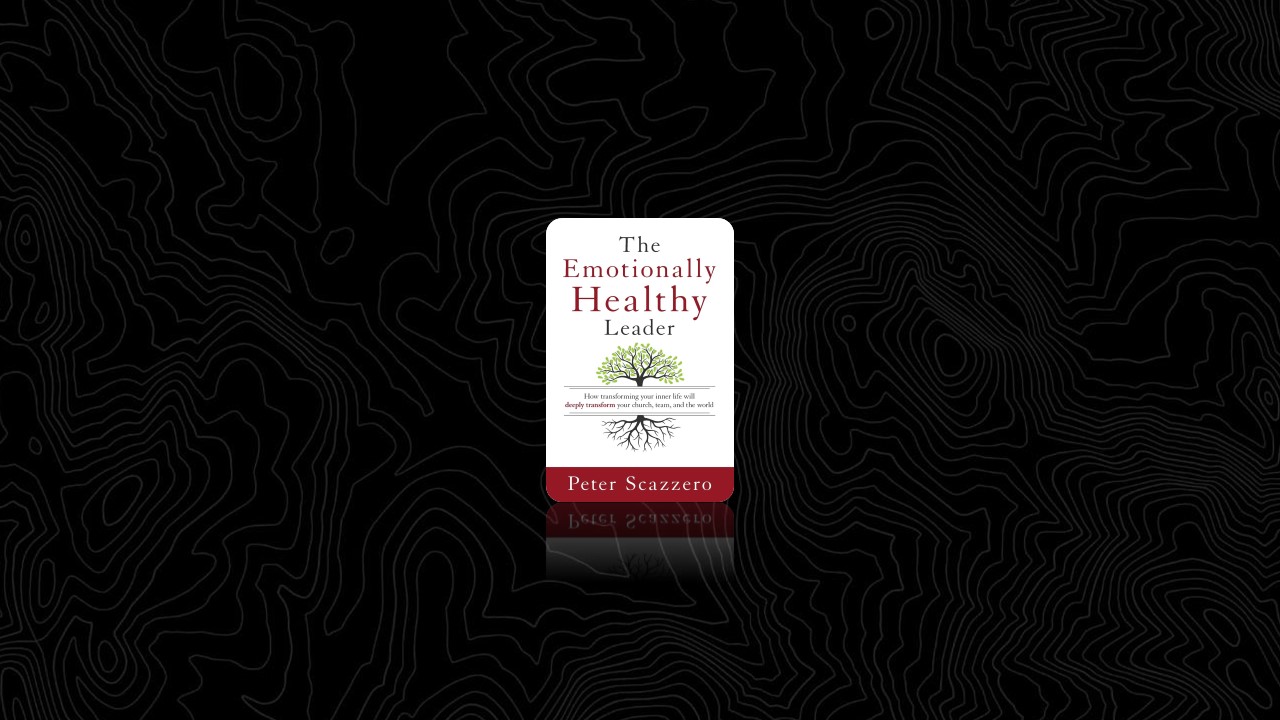The Emotionally Unhealthy Leader
Every family has “commandments” — those unspoken rules about what is okay and not okay to say and do. Growing up, we naturally absorb and follow these rules that govern the way our families do life. If our families were places of warmth, safety, and respect, then we absorb those qualities like the air we breathe. They inform our understanding of ourselves and the way we interact with the world. If our families were instead places where coldness, shame, put-downs, and perfectionism were the norm, we naturally absorb these qualities, and they too inform the way we view ourselves and how we engage the world.
In the same way, we have been birthed into a church family that has its own unhealthy and largely unspoken commandments about leadership. If you want to become an emotionally healthy leader, sooner or later you will have to resist the pull of one or more of these commandments.
Unhealthy Commandment 1: It’s Not a Success Unless It’s Bigger and Better
Success isn’t always bigger and better.
The teaching of Jesus is that we are to abide in him and abound in fruit (see John 15:1 – 8). It’s not about choosing one or the other — abounding in growth or abiding in Jesus. What abiding and abounding looks like will differ depending on our unique leadership callings. Cloistered monks who spend most of their time in prayer and offering spiritual direction will bear a different kind and quantity of fruit than I will as a pastor of a church in New York City.
Unhealthy Commandment 2: What You Do Is More Important than Who You Are
What we do matters — to a point. Whether you’re a board member, pastor, ministry or small group leader, a worship team member, greeter, children’s ministry volunteer, or a marketplace leader, your competency and skill set to do that task are vitally important. And, hopefully, you want to develop your skills and increase your effectiveness.
But who you are is more important than what you do. Why? Because the love of Jesus in you is the greatest gift you have to give to others. Who you are as a person — and specifically how well you love — will always have a larger and longer impact on those around you than what you do. Your being with God (or lack of being with God) will trump, eventually, your doing for God every time.
Unhealthy Commandment 3: Superficial Spirituality Is Okay
The problem is that in most settings, as long as leaders are doing their jobs (volunteer or paid), everyone is pleased. If their ministry is growing, we are thrilled. Who are we to judge if someone’s relationship with Christ is superficial or lacking? I agree we don’t want to judge, but we do want to be discerning. Just because we have the gifts and skills to build a crowd and create lots of activity does not mean we are building a church or ministry that connects people intimately to Jesus.
How can we overcome the lure of this deadly commandment?
We slow down. We commit ourselves to learning from the contemplative tradition and writings of leaders through church history. And we apprentice ourselves to the wider global church, to believers who, though different from us in some ways, have much to teach us about such things as solitude, silence, and stillness with God as we labor to bring the good news of Jesus to the world around us.


